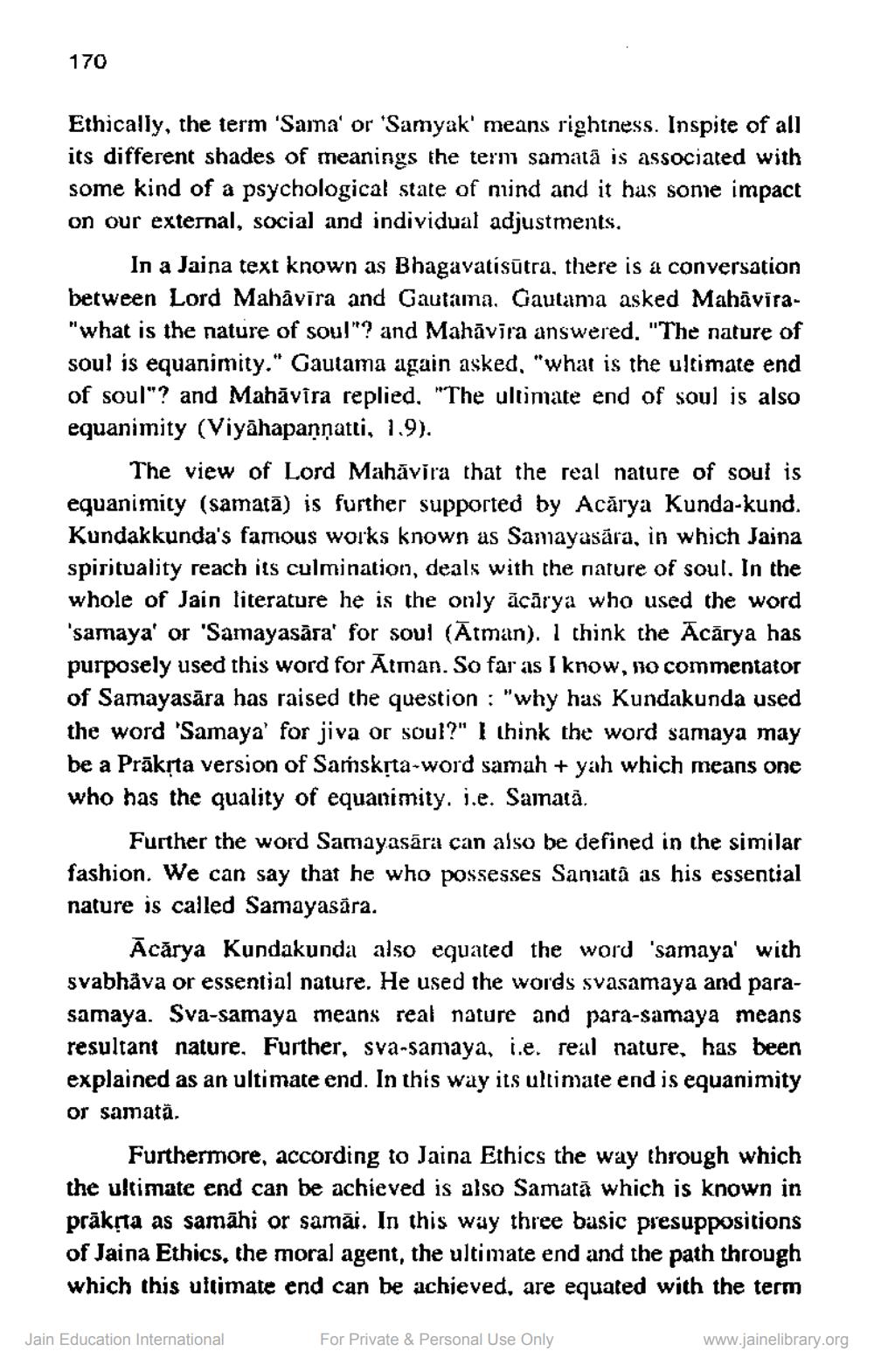Book Title: Spiritual Foundation of Jainism Author(s): Sagarmal Jain Publisher: Z_Sagar_Jain_Vidya_Bharti_Part_4_001687.pdf View full book textPage 8
________________ 170 Ethically, the term 'Sama' or 'Samyak' means rightness. Inspite of all its different shades of meanings the term samatā is associated with some kind of a psychological state of mind and it has sone impact on our external, social and individual adjustments. In a Jaina text known as Bhagavatísūtra, there is a conversation between Lord Mahavira and Gautama, Gautama asked Mahāvira"what is the nature of soul"? and Mahāvīra answered. "The nature of soul is equanimity." Gautama again asked, "what is the ultimate end of soul"? and Mahāvīra replied, "The ultimate end of soul is also equanimity (Viyahapanņatti, 1.9). The view of Lord Mahăvira that the real nature of soul is equanimity (samatā) is further supported by Acărya Kunda-kund. Kundakkunda's famous works known as Samayasára, in which Jaina spirituality reach its culmination, deals with the nature of soul. In the whole of Jain literature he is the only acārya who used the word samaya' or 'Samayasāra' for soul (Ātman). I think the Ācārya has purposely used this word for Ātman. So far as I know, no commentator of Samayasāra has raised the question : "why has Kundakunda used the word 'Samaya' for jiva or soul?" I think the word samaya may be a Prāksta version of Samskrta-word samah + yah which means one who has the quality of equanimity. i.e. Samalà. Further the word Samayasāra can also be defined in the similar fashion. We can say that he who possesses Sanatá as his essential nature is called Samayasära. Ācārya Kundakunda also equated the word 'samaya' with svabhäva or essential nature. He used the words svasamaya and parasamaya. Sva-samaya means real nature and para-samaya means resultant nature. Further, sva-samaya, i.e. real nature, has been explained as an ultimate end. In this way its ultimate end is equanimity or samatā. Furthermore, according to Jaina Ethics the way through which the ultimate end can be achieved is also Samatā which is known in prāksta as samāhi or samāi. In this way three basic presuppositions of Jaina Ethics, the moral agent, the ultimate end and the path through which this ultimate end can be achieved, are equated with the term Jain Education International For Private & Personal Use Only www.jainelibrary.orgPage Navigation
1 ... 6 7 8 9 10 11 12 13
